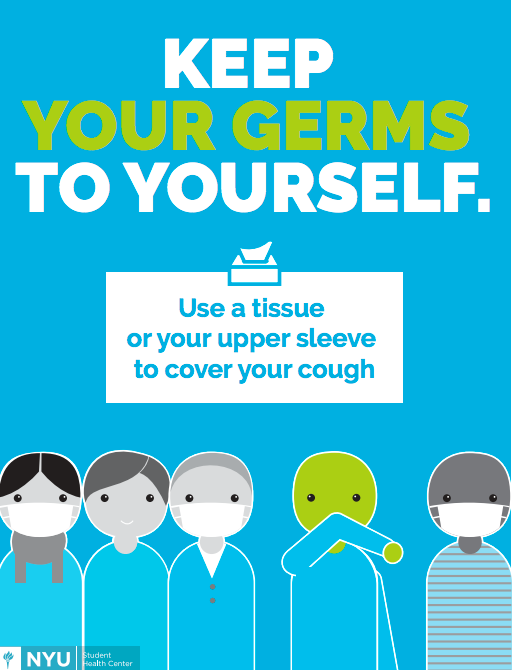NYU Health Service Immune to Influx of Influenza Cases
NYU has been posting information online about how to stay cold-free this flu season.
February 2, 2018
The flu this year has proven to be the most severe case since its monitoring by the Center for Disease Control in 2005. Hospital and healthcare workers have been stretched thin. According to a recent report by Time, some hospitals have even been forced to set up tents outside healthcare centers to accommodate the overflow of patients.
Executive Director of the NYU Health Center Dr. Carlo Ciotoli explained to WSN why this version of the flu has caused so much damage.
“This year is particularly severe because the predominant strain of flu virus is the H3N2 flu strain, which tends to be more severe and causes more severe symptoms than other strains of flu virus,” Ciotoli said.
New #FluView report: 39 states plus New York City and Puerto Rico are now experiencing “high” flu-like activity. All states in the continental U.S. are reporting widespread flu activity for the third consecutive week. https://t.co/To4m34xyeh pic.twitter.com/nHdvXeghhT
— CDC Flu (@CDCFlu) January 29, 2018
This year, the flu overtook the H1N1 pandemic of 2009 in total number of outpatient visits for flu-like symptoms and has caused concerns for health professional across the United States. Estimates from the CDC on the 2009 strain, commonly referred to as “swine flu,” list that it left over 12,000 people dead and over a quarter of a million hospitalized across the nation.
In a statement by the CDC, the surge in patients is caused by the greater impact on people between the ages of 50 to 64, as opposed to a significant impact on children, which is the typical outcome.
“Those influenza viruses that are sending these [50 to 64-year-olds] to the hospital this season, we see that not only is it H3N2 but also the other influenza A virus H1N1 that is contributing to these higher rates,” CDC spokesperson Dr. Daniel Jernigan said.
While reported cases of influenza have soared nationwide, NYU has yet to experience a significant increase in cases. According to Dr. Ciotoli, the overall visits into primary care have remained roughly what they were last year. Despite this, students are still highly recommended to take a certain number of precautions like getting a flu shot.
#FluFactFriday: Flu and the common cold are both respiratory illnesses, but are caused by different viruses. Telling the difference between them is difficult based on symptoms alone, but can be done by lab testing. https://t.co/GX6XcdEVqS pic.twitter.com/BAdsW8nk19
— CDC Flu (@CDCFlu) January 26, 2018
A flu vaccine helps create the necessary antibodies to protect against other strains of the flu. While some media outlets have noted the flu shot’s inefficiency at treating the H3N2 flu strain, data from the CDC estimates flu shot efficacy at around 30 percent. Though peak flu activity typically occurs between December and February, flu season can extend as far as May. Therefore, it is not too late for students to get vaccinated and to lower their chances of catching the flu. NYU Students can obtain a free flu shot by making a flu vaccination appointment with the NYU Health Service.
Additionally, students can protect themselves and others by changing some of their habits. To prevent droplet infections, students with the flu should limit the possibility of transmission by limiting contact with others, staying home 24 hours after the fever is gone and covering their mouths and noses when coughing or sneezing. Meanwhile, students will reduce their chances of contamination by washing their hands regularly, avoiding touching their eyes, noses and mouths and disinfecting any items that may be contaminated with germs.
If you experience any signs of the flu it is recommended that you seek help from a professional practitioner.
Email Louis Dalle at [email protected].
























































































































































